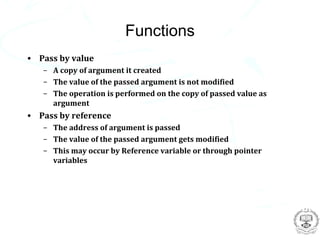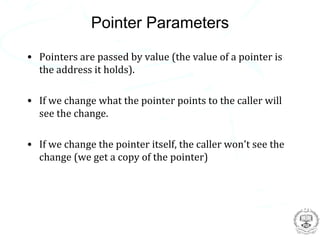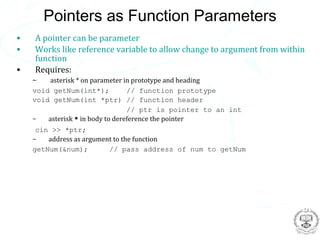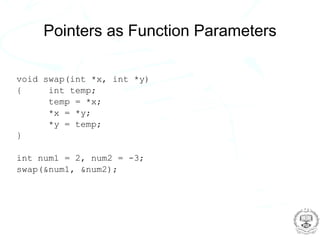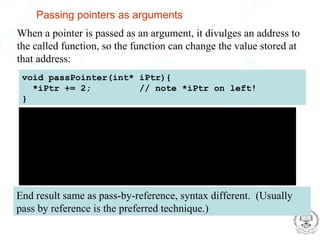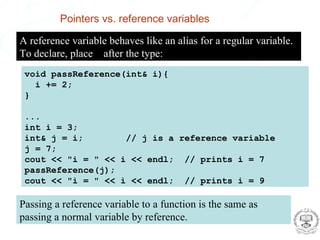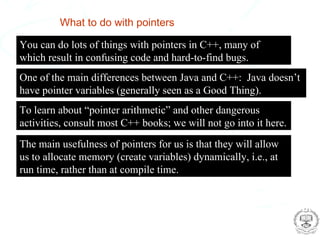This document provides an overview of pointers in C++. It defines what a pointer is, how to declare pointer variables, and how to dereference pointers using the indirection operator. It discusses how to get the address of a variable using the address of operator and how to assign that address to a pointer variable. The document also covers pointer arithmetic, passing pointers as function parameters, dynamic memory allocation using new and delete, and the differences between pointers and references.
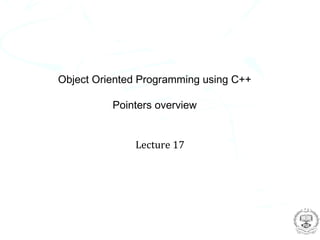
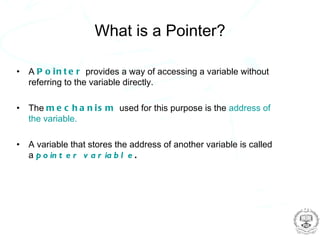
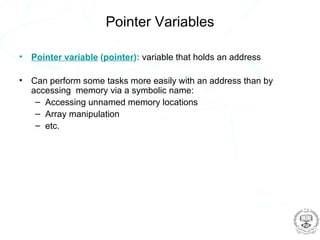
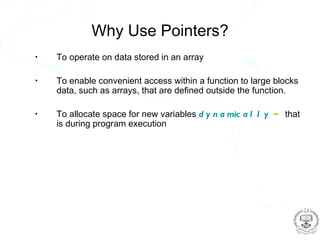
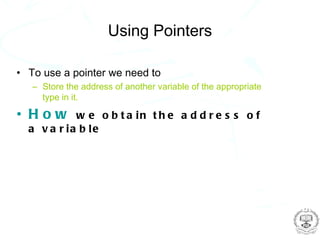
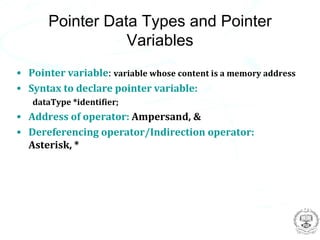
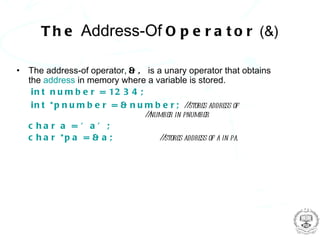
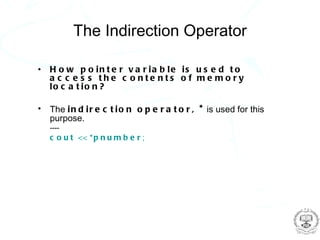
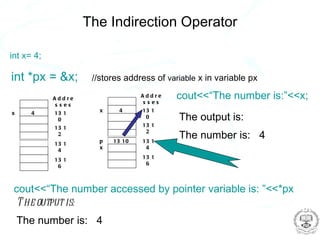
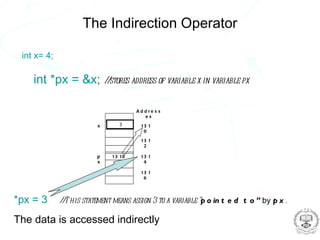
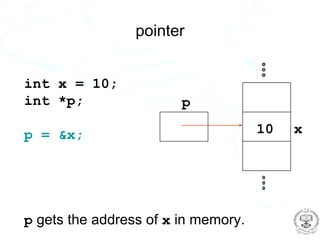
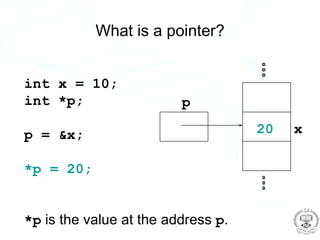
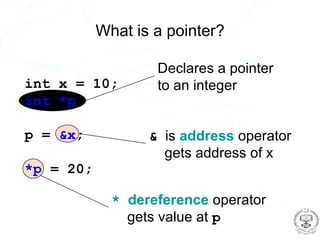
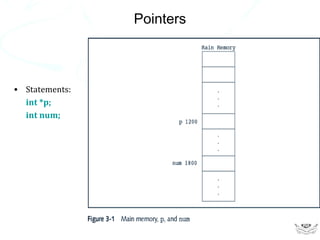
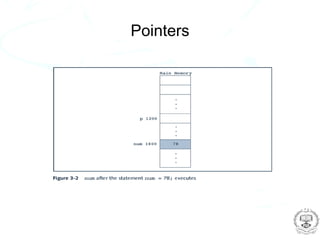
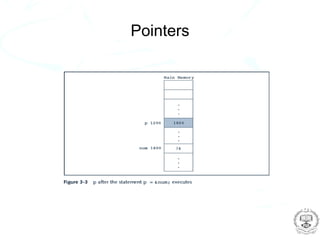
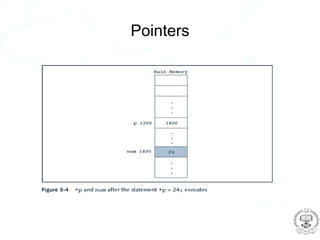
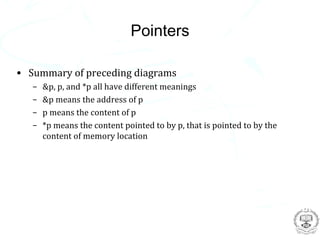
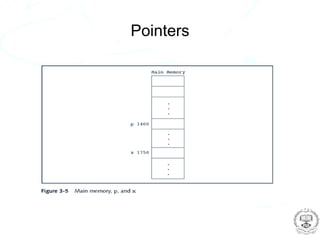
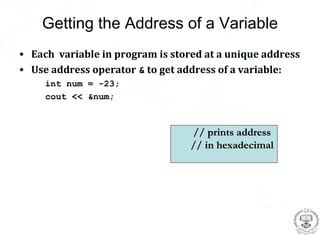
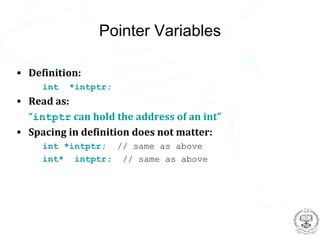
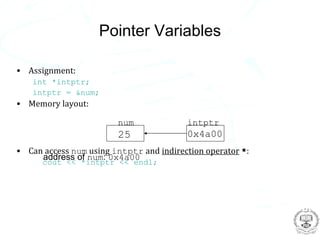
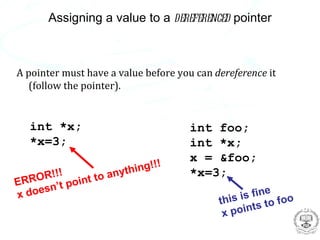
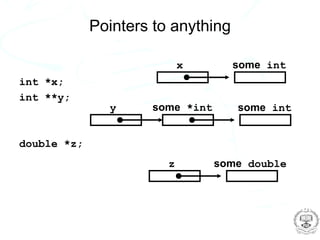
![The Relationship Between Arrays and Pointers
• Array name is starting address of array
int vals[] = {4, 7, 11};
starting address of vals: 0x4a00 4 7 11
cout << vals; // displays 0x4a00
cout << vals[0];
// displays 4](https://image.slidesharecdn.com/lecture17-120415030123-phpapp02/85/oop-Lecture-17-25-320.jpg)
![Pointers and Arrays
• An array name is basically a const pointer.
• You can use the [] operator with a pointer:
int *x;
int a[10];
x = &a[2]; x is “the address of a[2] ”](https://image.slidesharecdn.com/lecture17-120415030123-phpapp02/85/oop-Lecture-17-26-320.jpg)
![Pointer Arithmetic
• Operations on pointer variables:
Operation Example
int vals[]={4,7,11};
int *valptr = vals;
++, -- valptr++; // points at 7
valptr--; // now points at 4
+, - (pointer and int) cout << *(valptr + 2); // 11
+=, -= (pointer valptr = vals; // points at 4
and int) valptr += 2; // points at 11
- (pointer from pointer) cout << valptr–val; // difference
//(number of ints) between valptr
// and val](https://image.slidesharecdn.com/lecture17-120415030123-phpapp02/85/oop-Lecture-17-27-320.jpg)
![Pointer arithmetic
• Integer math operations can be used with pointers.
• If you increment a pointer, it will be increased by the size
of whatever it points to.
int *ptr = a;
*(ptr+2)
*(ptr+4)
*ptr
a[0] a[1] a[2] a[3] a[4]
int a[5];](https://image.slidesharecdn.com/lecture17-120415030123-phpapp02/85/oop-Lecture-17-28-320.jpg)
![Initializing Pointers
• Can initialize at definition time:
int num, *numptr = #
int val[3], *valptr = val;
• Cannot mix data types:
float cost;
int *ptr = &cost; // won’t work](https://image.slidesharecdn.com/lecture17-120415030123-phpapp02/85/oop-Lecture-17-29-320.jpg)
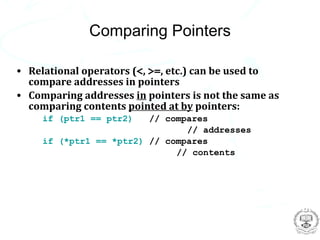
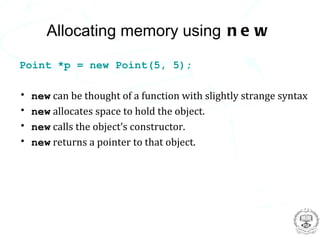
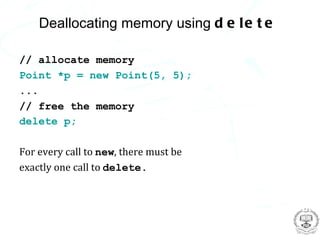
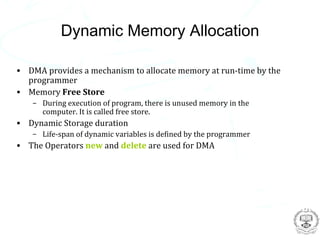
![Rules to Observe
• Do not use delete to free the memory not allocated by new
• Do not use delete to free the same block of memory twice
in succession
• Use delete [ ] if you used new to allocate memory for an
array](https://image.slidesharecdn.com/lecture17-120415030123-phpapp02/85/oop-Lecture-17-34-320.jpg)
![Void Pointer
• A void* is a generic pointer. Pointer of any type can be assigned to the
void pointer
• Once assigned the type of void* is the same as that of assigned pointer
type
• Dereferencing a void* is a syntax error
void* sPtr; int num;
int z[3]={1,2,3};
sPtr= z;
num= *sPtr; // ERROR
num= *(int*) sPtr; // correct version](https://image.slidesharecdn.com/lecture17-120415030123-phpapp02/85/oop-Lecture-17-35-320.jpg)
